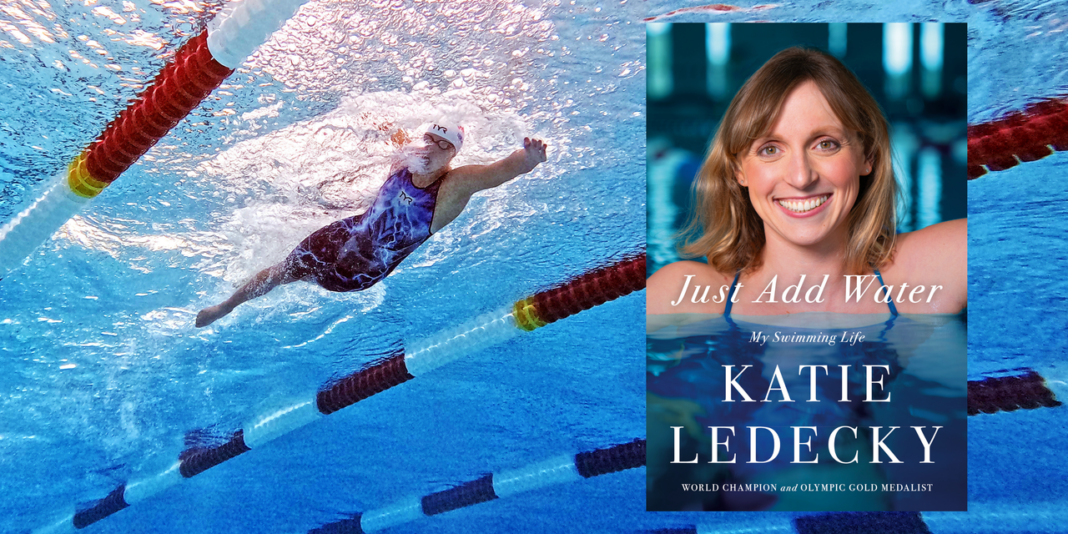He continued, “One of the great things about watching our Olympics is we are a portrait of what this country is all about, people from every walk of life, every background, every race, every faith. It sends a message to the world about what makes America special. It speaks to the character of this group, how you guys carried yourselves. And it’s even more impressive when you think about the obstacles that many of you have had to overcome not just to succeed at the Games but to get there in the first place.”And then he mentioned me by name, a shock I still haven’t recovered from.“Katie Ledecky may have been swimming in London, but she still had to finish the summer reading assignments for her high school English class.”Everyone laughed. Then he searched the crowd to find me. “Where’s Katie? Yes, there she is.”After pointing me out, then–Vice President Joe Biden came over to me and quipped, “I bet you finished that reading, didn’t you?” This was all heady stuff for a teenager entering her sophomore year of high school. Thankfully, my classmates and teachers did a great job of making things normal for me at school when I returned. I mean, sure, I did an assembly and answered a lot of questions about the Olympics. Students, teachers, everyone could ask whatever they wanted. But after that, the all-consuming feeling of having been a part of the world stage receded. At random times, I would feel somewhat overwhelmed, but I wasn’t exactly sure why.I did my best to push forward and inhabit my school universe, until at one point during the winter of my sophomore year, I was hit with the recognition that although I kept telling people I felt my life was still the same as it had been, maybe it actually wasn’t.Like it or not, I’d become a public figure. A professional athlete with an international audience. Being an Olympian, having that title and profile, was a massive adjustment. As was my brother leaving home and starting college. I was adapting to the fact that I was suddenly an only child in my house, and that my brother, Michael, the person who knew me best—and kept me levelheaded—was elsewhere. At school, it wasn’t as if I was treated as a different person post-London. But I kind of felt like one.When I’d started at Stone Ridge the year before, I’d entered as a new freshman, not an Olympian; just another student trying to make friends. When I returned from London, Bob Walker, my spirited high school swim coach, counseled me that though I was a gold-medal winner now, my other qualities were what made me who I was. Bob, my classmates, teachers, and administrators helped me traverse the bridge between regular fifteen-year-old and Olympic gold medalist.In swimming, it can be easy to get stuck in your own head. After all, you spend most of your time face down in the water, staring down at the black line at the bottom of the pool. Back at Stone Ridge, I was fortunate to be able to get back in the swing of things with my high school classmates on the swim team. We were all dedicated swimmers, but we also kept things fun and light. After London, I also took care to balance out my swimming with volunteering and committing to school service projects. I tried to maintain a connection to my community that went beyond the pool. By doing more, I filled my time, stayed occupied, literally spent more hours with my feet on the ground. I held on to who I always was while accepting who I was becoming. And I reminded myself every day that I was, like Coach Bob and Yuri and my parents so frequently said, so much more than a swimmer.Excerpted from JUST ADD WATER: My Swimming Life. Copyright © 2024 by Katie Ledecky. Reprinted by permission of Simon & Schuster, Inc. All rights reserved.
15-Year-Old Katie Ledecky Felt ‘Zero-Pressure’ at Her First Olympics—And Left a Gold Medalist
